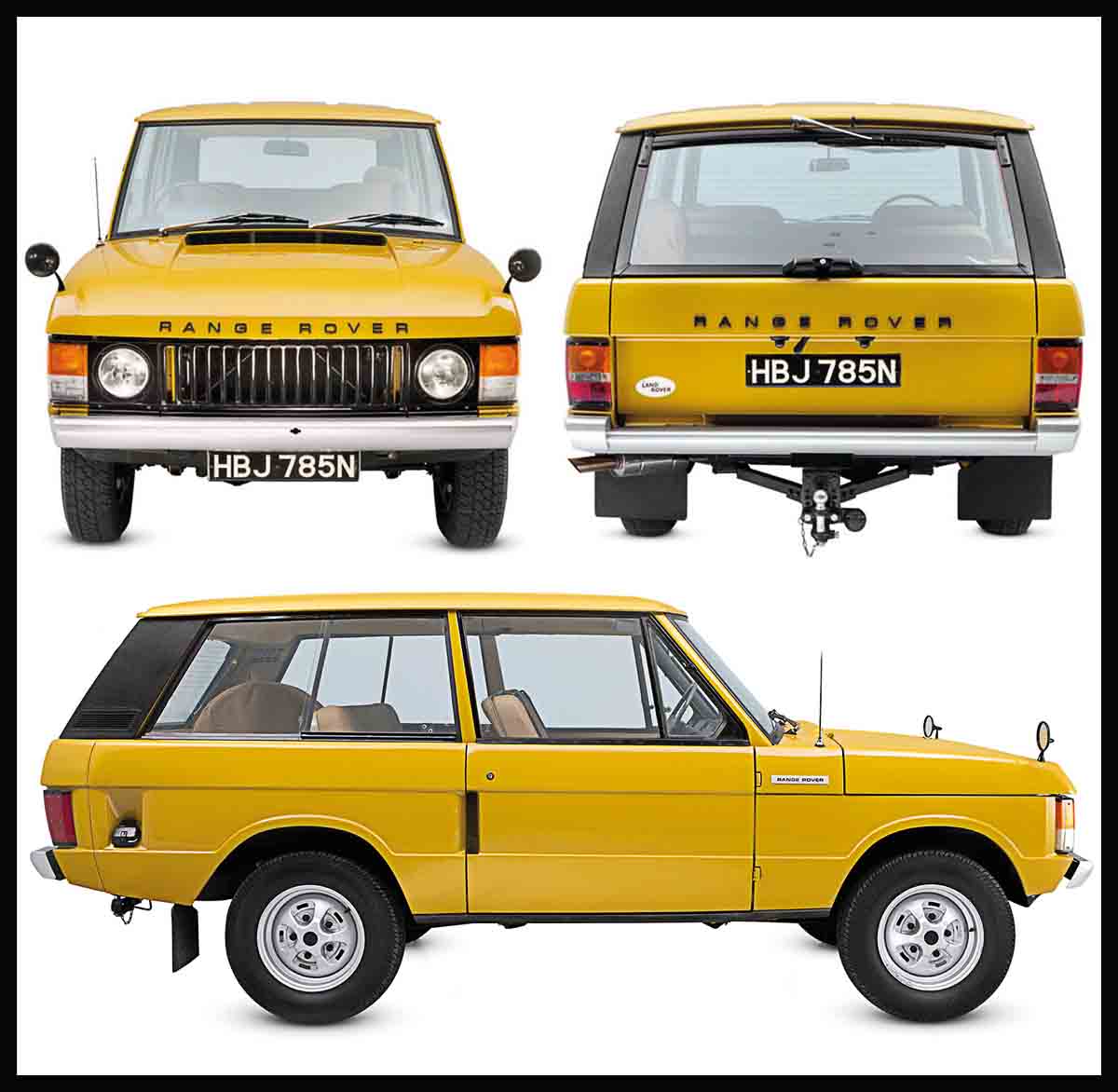
Go-Anywhere Ability
The utilitarian off-road vehicles designed during World War II matured into pick-ups, estates, and SUVs that offered comfort and convenience features such as power steering, coil-spring suspension, and automatic transmission, but still retained that essential go-anywhere capability. They made excellent towing vehicles, too, and with soft springs and good visibility thanks to their lofty driving positions they won fans—even among drivers who never left the asphalt. Higher standards of trim and additional labour-saving devices such as electric windows and electric mirrors became more common as SUVs increasingly appealed to luxury buyers.
Range Rover, 1970
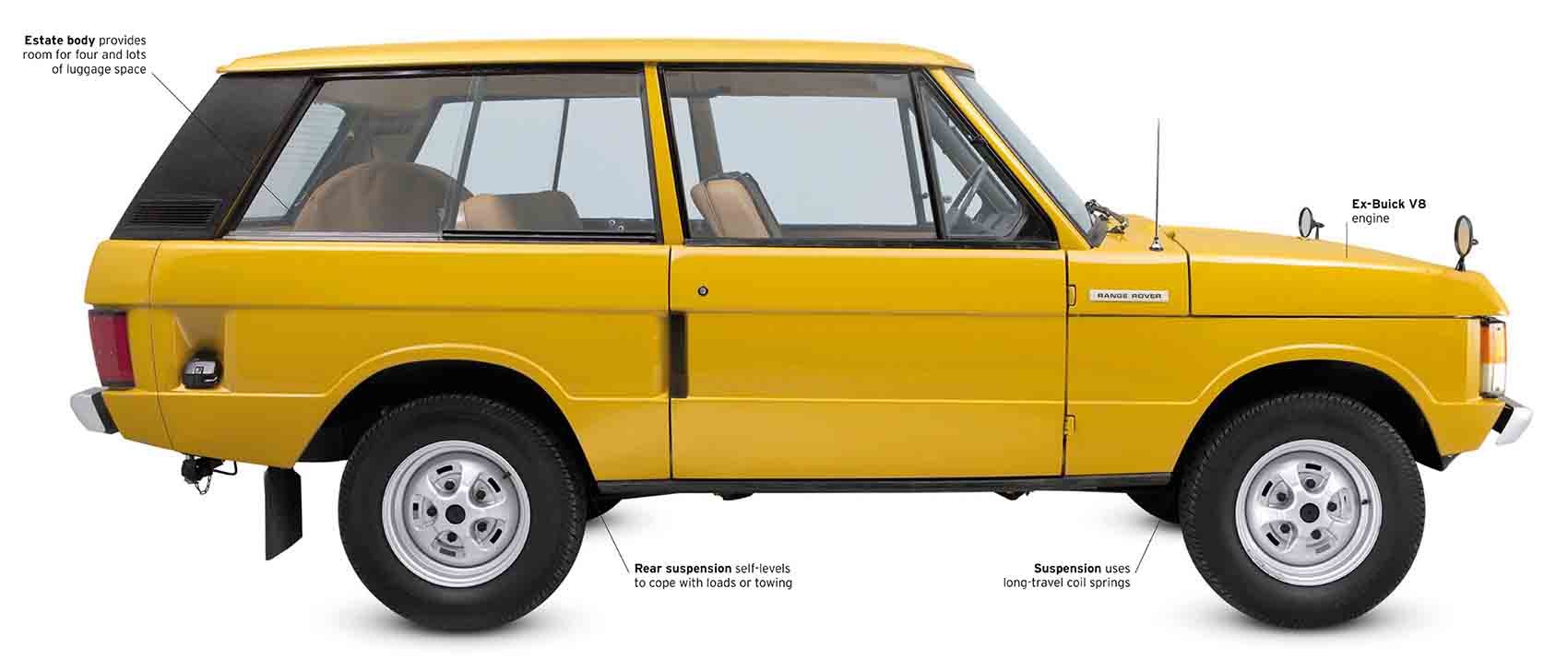
| Origin | UK |
| Engine | 3,528 cc, V8 |
| Top speed | 99 mph (160 km/h) |
A step up from the Land Rover, this car offered superb off-road ability, a comfortable ride, and effortless V8 performance. With vinyl seats and a plastic dashboard, its interior could be hosed clean. Luxury, and the option of four doors, came much later.
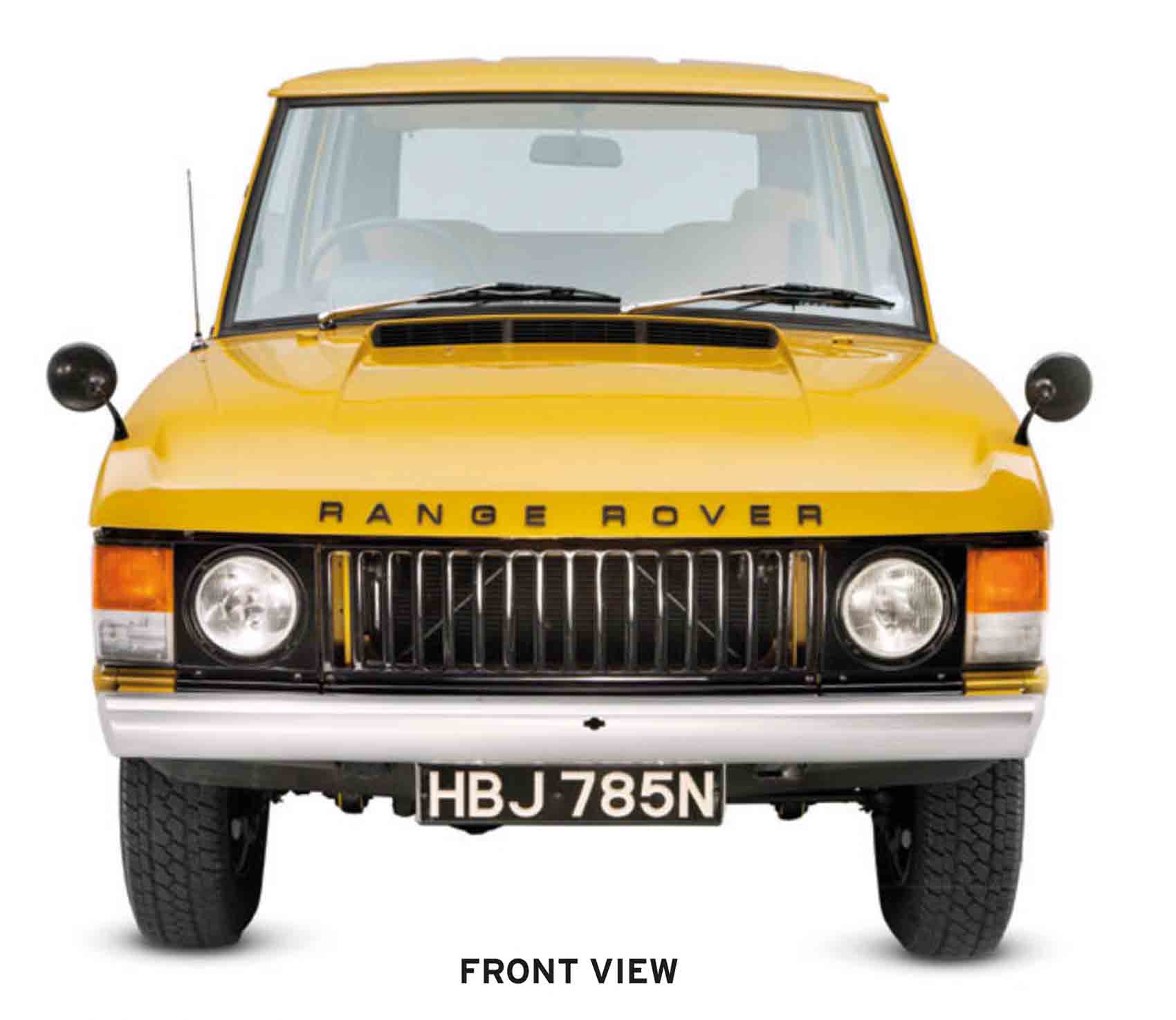
Broader bonnet
The Range Rover’s “clamshell” bonnet, which took the wing-tops with it when opened, had raised corners at the front to help position the car in low-speed manoeuvres.
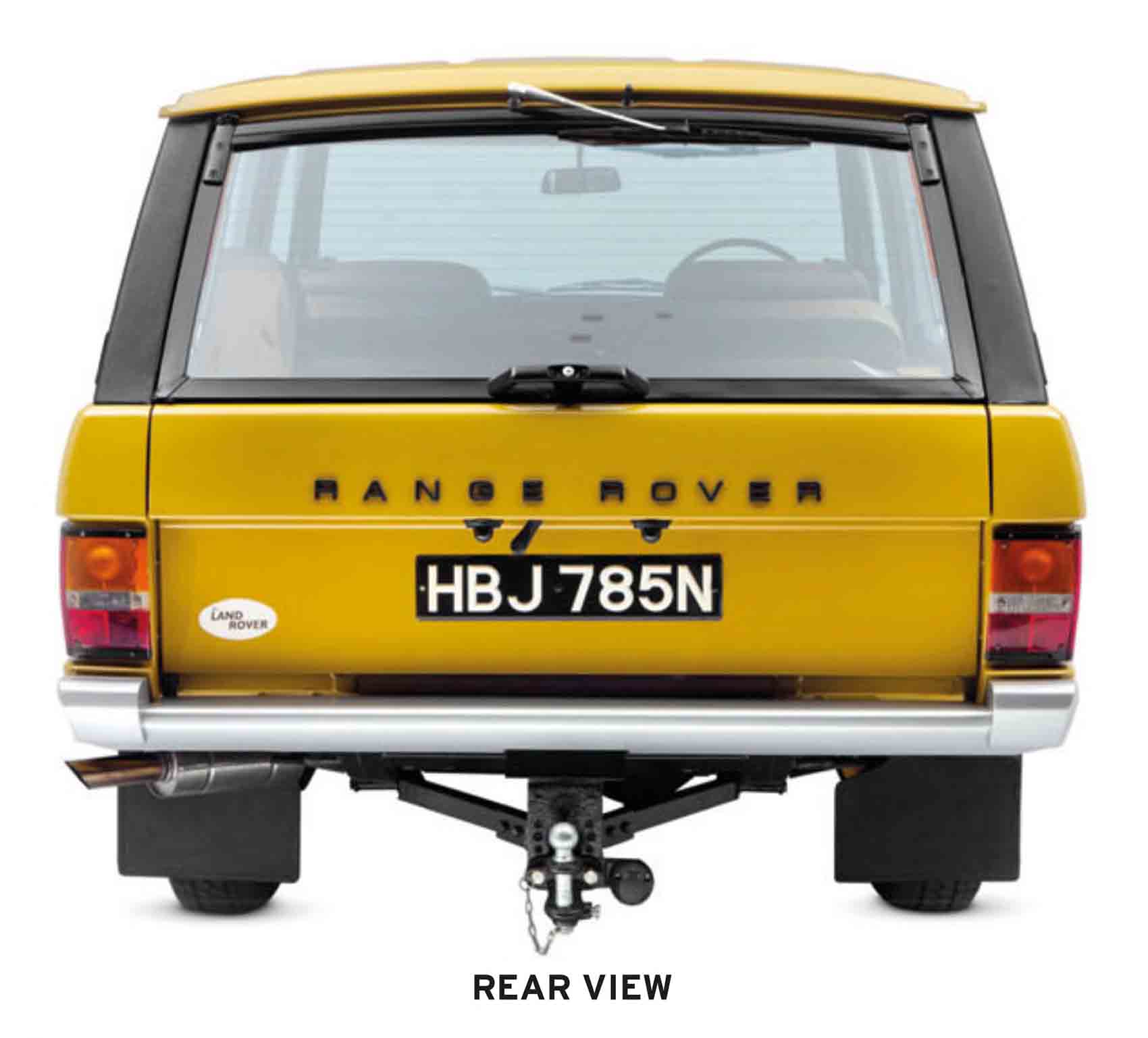
Easy access
A two-part tailgate, split in the middle, was a key feature; the upper glazed window opened upwards, the lower part dropped downwards. A top-mounted wiper was an unusual—and invaluable—fitment.
Ford Bronco, 1970
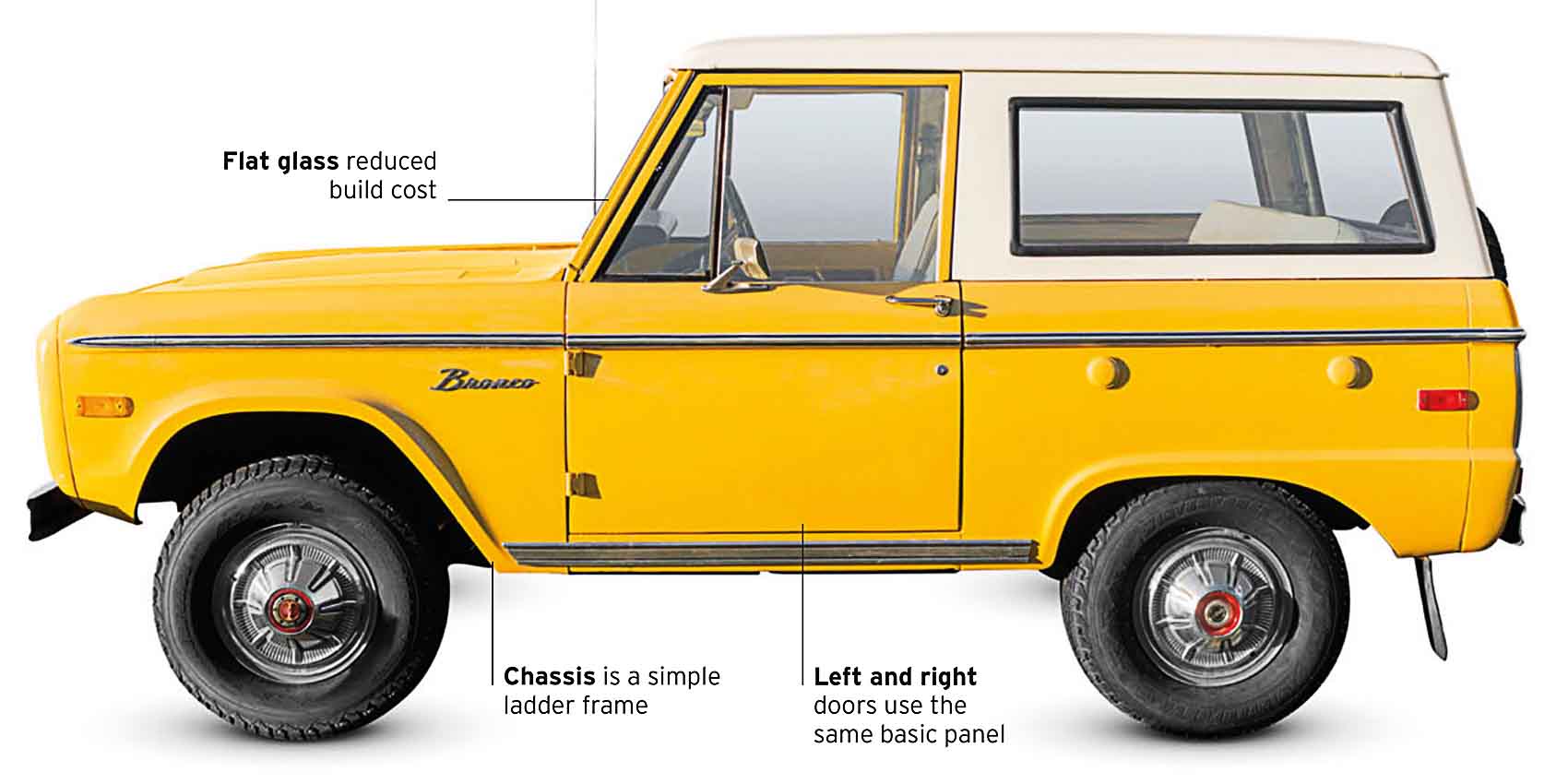
| Origin | USA |
| Engine | 2,781 cc, straight-six |
| Top speed | 76 mph (122 km/h) |
Conceived by the same team who gave Ford the Mustang, the Bronco was a brave early take on the SUV concept but was too small to capture the US market. Second-generation models from 1978 onwards were based on the larger F-100 pick-up.
Chevrolet Blazer K5, 1970
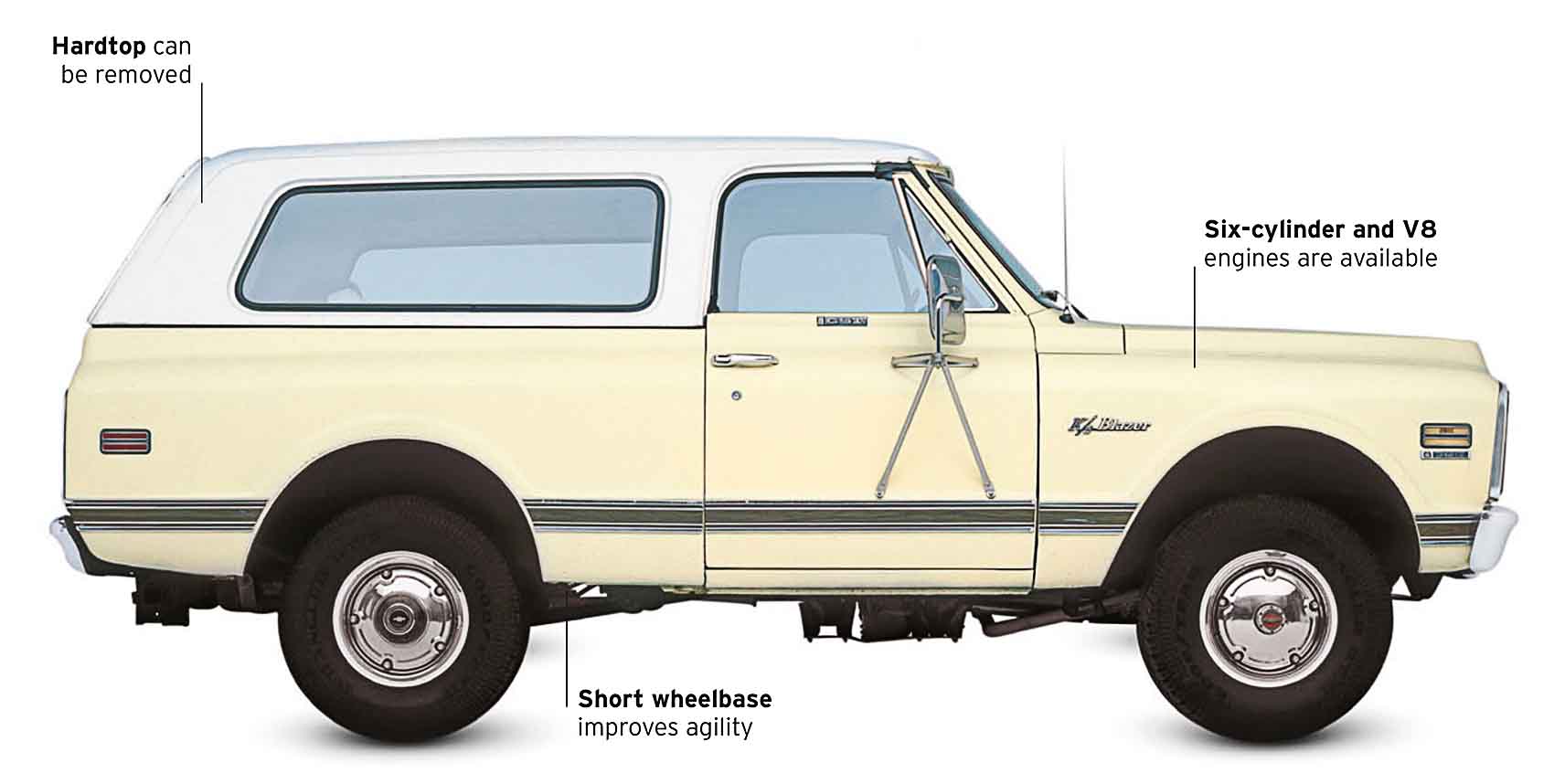
| Origin | USA |
| Engine | 5,735 cc, V8 |
| Top speed | 98 mph (158 km/h) |
The Blazer was a shortened version of Chevrolet’s pick-up truck, with a full cab added. It was offered in two- or four-wheel-drive models with six- or eight-cylinder engines to compete against the Jeep, Ford Bronco, and International Harvester Scout. GMC sold the same vehicle as the Jimmy.
Subaru Leone estate, 1972
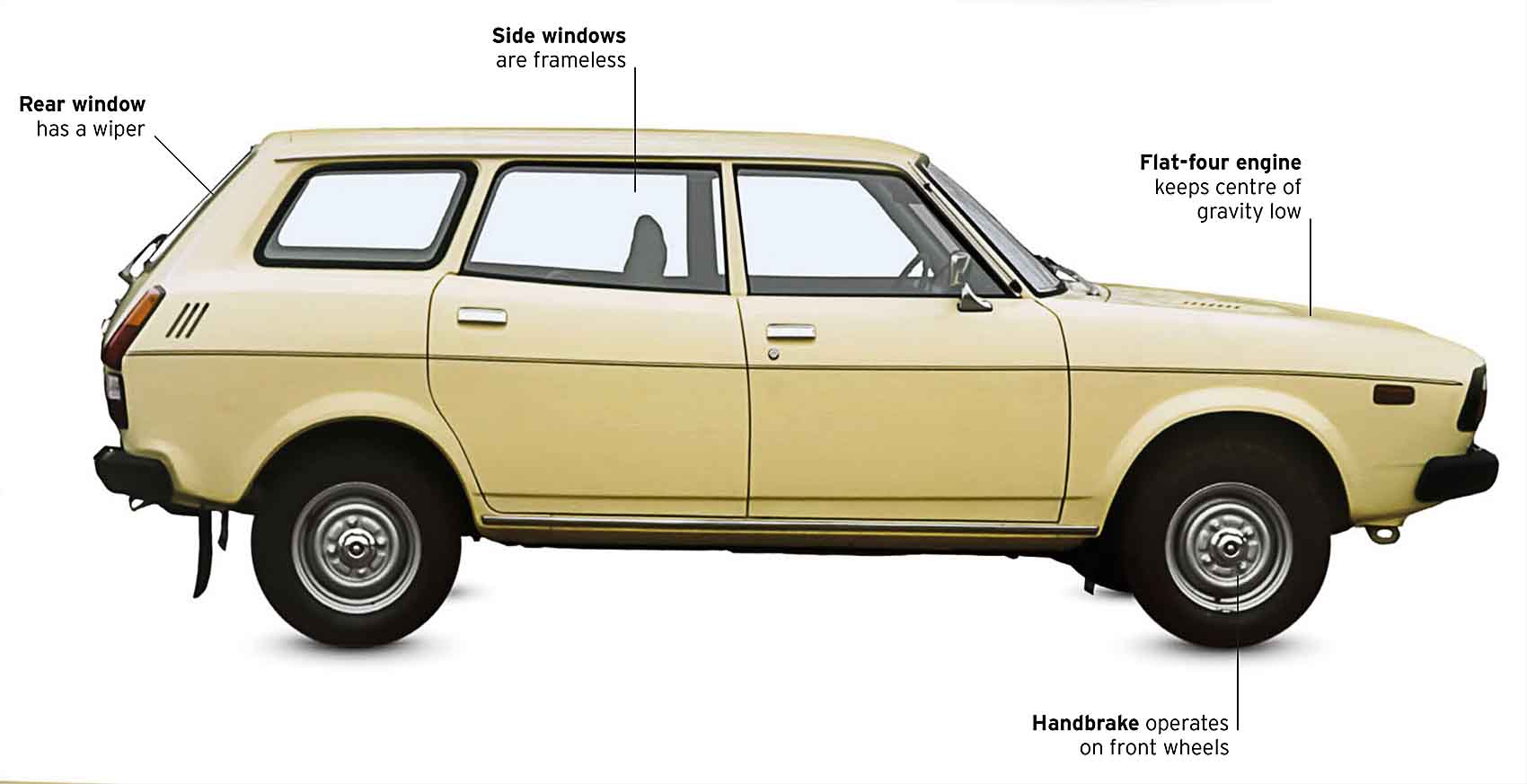
| Origin | Japan |
| Engine | 1,595 cc, flat-four |
| Top speed | 87 mph (140 km/h) |
The first of the four-wheel-drive, everyday road cars, the Leone (1600 in the UK and US) estate was a pioneer. Four-wheel-drive grip was combined with car-like comfort and ease of use. The Leone sold well in mountainous regions and areas where winters were harsh.
Jeep Wagoneer, 1972
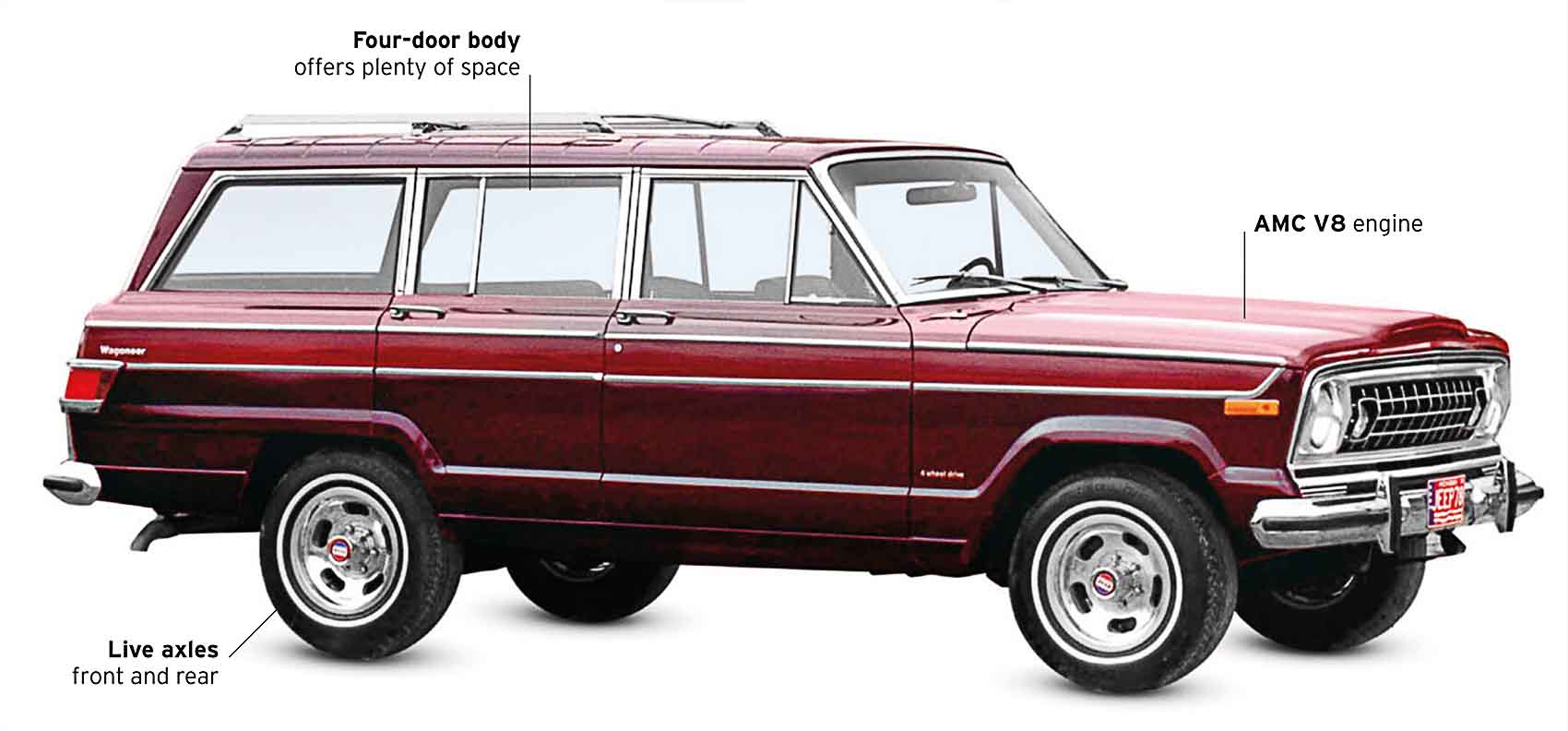
| Origin | USA |
| Engine | 5,896 cc, V8 |
| Top speed | 95 mph (153 km/h) |
AMC took over Jeep in 1970, improving its cars with new engines. The Wagoneer was the original luxury 4×4, years before the Range Rover appeared. Refined, easy-to-use Quadra-Trac four-wheel drive was added in 1973. The extraordinary production run carried on into the 1990s.
It is a quote. The Classic Car Book – The Definitive Visual History 2016




